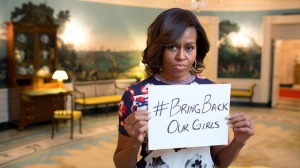Check out these summer reading promotion flyers for the 2014 selections! 🙂
For students entering their sophomore year:
Memorial Day is upon us. Here are some ideas for bringing it to the classroom to remind students that it’s more than a three-day weekend and the unofficial start of summer!
Veteran’s History Project (from the Library of Congress)
Check out the Veteran’s History Project, where students can search the collection and learn about a veteran (or two or three . . . or ?). After reading through different stories (each account has different resources — some audio, some copies of letters, official documents), students could creatively share/present their veteran and why that person’s service is important or they could write a poem or story based on one veteran or multiple veterans based on what they learned about them, their service, etc . . ..
This is a great way to incorporate the standards for using text as evidence, gathering information from sources, writing, etc . . . You could even work with students to develop a question (yay inquiry!) about war or service or the importance of Memorial Day and let them use this source to help them answer that question. They can search by war or by branch of service so you (or they) could narrow/expand this as broadly as you want.
If you’re World Literature, it might be interesting to look into Vietnam or Afghanistan. Brit Literature folks should find plenty in World War I and II that they could perhaps connect to. If you’re an American Literature teacher, you can tie this idea to the American Civil War, but check out Civil War Soldiers’ Stories instead.
United States War Memorials (from the USA.gov)
Check out this usa.gov site called Military History, Memorials and Monuments that has links to sites about the various monuments and memorials in the United States. This would be great with an over-arching question, “Why do we memorialize?” or “Why do we remember?”
After choosing a monument to research or read about, students could share what they learned with the class. You could look at one or two memorials as a class and engage in a Socratic Seminar (see possible questions above) in which the memorials become the “text” that students reference in discussion.
If you’re aching for the literary-connection, there are poems about monuments and memorials, including Yusef Komunyakaa’s “Facing It” (Vietnam War Memorial) and Langston Hughes’s “Lincoln Memorial: Washington.” Students could use these as mentor texts to write a poem about a memorial or monument of their own or as starting points for research, or for discussion or Socratic Seminar. There are plenty of possibilities depending on what your students and you may want to do. 🙂
You could also use this information to invite students to design their own memorial in order to answer the question, “Why do (should) we memorialize?” (How?)
TeachingHistory.org
And if none of these ideas are moving you and you still want to do something, check out Teaching History’s list of Teaching Memorial Day resources.
Have an idea to share? Shoot it to me in an email or leave it below in the comments!
Hey all!
Check out this compilation by Maria Popova (of BrainPickings.com) of Famous Advice on Writing: The Collected Wisdom of Great Writers. A great resource to have for writing workshop – and a great bridge from literature to writing.
You have to read Leonard Pitt’s take on the terrorist kidnapping of Nigerian girls: Extermist Islam is Scared of Little Girls, and the Women They’ll Become. It’s a great article that begins to hit the bigger issues invested in the (somewhat) recent kidnapping of Nigerian girls.
It works great with:
Socratic Seminar: This would make a great Socratic Seminar text – I think it would elicit a fascinating (and necessary) discussion about the importance of being educated, staying educated, and finding “truth” in a world that would (arguably) prefer us to remain ignorant, so that it may have power over us. Power feeds on ignorance.
And/or we could explore any of these other issues at stake:
Power of Education: This would be great paired with other readings on the power of education (Frederick Douglass comes to mind) and its ability to combat ignorance and challenge the norms of a social and political structure. He mentions Malala, so this excerpt from her memoir might be a nice addition.
Women’s Rights: It fits in with historic arguments about women’s rights – Mary Wollstonecraft, Abigail Adams, Virginia Woolf, Elizabeth Cady Stanton – another example of why women’s rights are withheld and must be fought for.
Global Awareness: This would work great with a group of current-event texts about the kidnapping of the Nigerian women, and perhaps some visuals from the “Bring Back Our Girls” support campaign that celebrities are championing.


